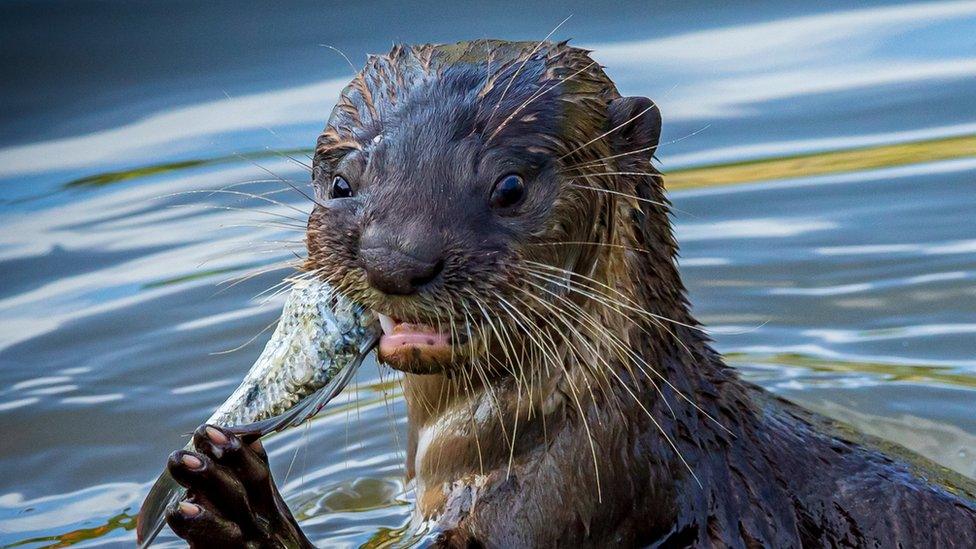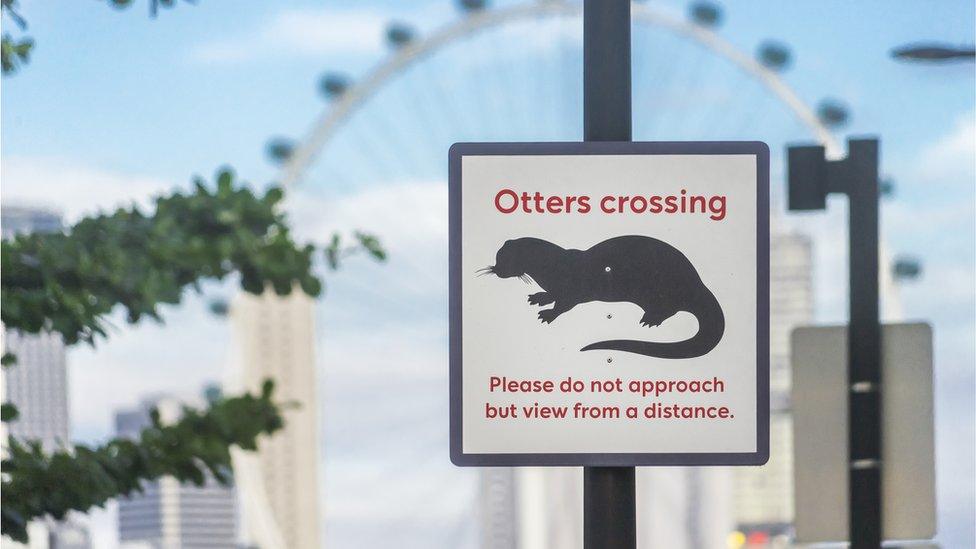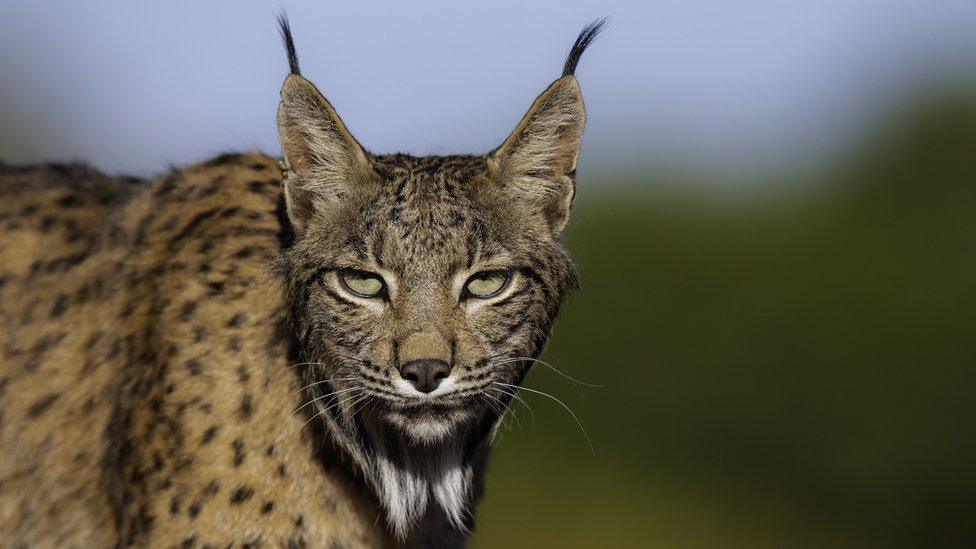Otters: Singapore struggles as numbers boom
- Published
- comments

They may look cute and cuddly but people in Singapore say it's 'otter' chaos after their numbers have more than doubled since 2019.
Around 50 years ago Otters were endangered on the Southeast Asian island, but thanks to efforts by the Singaporean government, they eventually flourished once again.
But humans and otters aren't quite living in harmony there just yet.
They've been known to attack humans on rare occasions and now the National Parks Board (NParks) wants to move the 170 otters away from residential areas.

Otters and humans are now trying to learn to live together in urban areas
Wildlife experts have already started their relocation.
A family of otters had been causing havoc in one of the estates, snatching fish from people's ponds and eventually made their home near a busy road.
So moving them to a different area not only protects people, but also the otters themselves.
The number of reports about otters from people living in the area has increased from just over 200 in 2020 to more than 300 as of this August.
Most of the reports have just been of sightings but they have been known to get aggressive if they feel threatened.

So why have otters numbers increased so much?
Back in 1977, the Singaporean Government introduced their Clean River Campaign because the rivers there were filled with rubbish and sewage, which was not only smelly but also really harmful for the local wildlife.
It took around 20 years, but eventually the otters began to return as there were more fish for them to feast on in the rivers and no predators.
But their love of koi fish is costing locals quite a lot - with one person having to fork out $64,000 (nearly £40,000) to replace what the otters had eaten!
Despite their mischief, people enjoy taking photos of the animals and posting them for the world to see.
- Published23 October 2022

- Published20 October 2022

- Published21 October 2022

